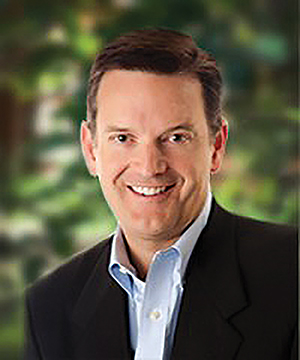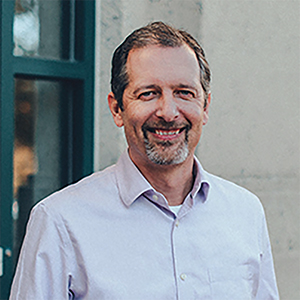
You were called to make disciples, not live in a constant state of exhaustion.
Leading a church can be a difficult, but fulfilling calling — yet that doesn’t mean all the hard work always pays off the way you hoped. To get the best out of your ministries, new thinking is required for new challenges.
If you’re frustrated or simply unsatisfied with your current approach to ministry leadership, maybe it’s time to rethink your approach to ministry planning.
What could you be doing differently? How does it make a difference? To answer these questions, Church Executive recently partnered with Joe Park, managing partner at Horizons Stewardship, and Tony Morgan, founder and lead strategist at The Unstuck Group, to host a webinar: “Stop Wasting Your Ministry Potential: How Smarter Planning Will Change Your Ministry Results.”
In it, Park and Morgan dive into three areas of local church ministry that leaders can’t afford to get wrong: strategy, funding and communications. Specifically, these experts discuss:
- Why most leaders talk about strategic planning, but few practice it
- How a funding plan is a critical element to activating any effective church strategy
- What you can do to make communications an intentional part of implementing church strategy
Listen to these seasoned experts offer advice on leadership, prioritizing, communicating, and much more — all taken from real experiences — to answer questions on how to make new strategies work for your unique church.
To learn more, view the webinar on the Church Executive website at www.churchexecutive.com/webinars.
— Reporting by Skylar Griego

Managing Partner
Horizons Stewardship
Questions? Readers ask, experts answer.
Why does it make sense to do strategy planning at the same time you flesh out your funding strategy? Shouldn’t you do one before the other?
Park: The timing has a lot to do with the church’s circumstances. If the church’s annual giving is strong and there is time to do the planning, it’s ideal for the church to engage with a group like The Unstuck Group to work develop those plans. Then, [Horizons Stewardship] can be invited in to help create a ministry funding plan.
However, a lot of churches don’t contact us until they’re already in a financial crisis. Tony and I are working with a church that contacted us only after it ran out of money to pay the bank and its denominational requirements. In this instance, the first thing we did was put together a plan to bring stability to the ministry funding; then, The Unstuck Group was enlisted to help create a strategic ministry plan. Ultimately, we’re not going to successfully move the financial needle if people can’t find hope, vision and a plan to get there.
Morgan: Yes. In an ideal world, we always want ministry strategy to shape funding strategy. Even if the vision and strategy are clear and the church has a focused initiative project, it won’t be helpful if we need to step back and do just strategic

Founder
The Unstuck Group
planning, and then wait for the funding to eventually come in. You really have to address the funding questions first, there.
How does planning help me make more disciples? Are those two different things?
Morgan: One helps the other, and it’s built on this principle from scripture that we must plan before we build. In our case, we’re trying to build healthy, thriving churches that produce disciples of Jesus. Unfortunately, what we’ve seen time and time again is that churches contact us because they’re stuck. They’re experiencing plateau or decline, and they’re not seeing the faith conversions that they’ve seen in the past.
Oftentimes, one of the reasons why they’re stuck is they’ve never stepped back and established this foundational plan that addresses key questions like, Why do we exist? Where’s God taking our church? How do we actually accomplish the ministry that he’s called us to?
A key piece of any ministry strategy developed by our team is the discipleship path, too. It’s not only about how we make new disciples, but about how we encourage them to take their next steps toward Christ.
Park: Yes, discipleship is the process by which the Holy Spirit does its work and lives are changed. Discipleship is the work of the church. At Horizons, we believe that generosity is a function of discipleship. Our mission statement is ‘making disciples, funding ministry.’
I’m on board with a better approach to planning, but the senior leader isn’t. What can I tell him that might change his or her mind?
Morgan: If you sense some disconnect between where you sense God needs to take your church and the current planning process and funding strategy, your first step is to pray — both for your church and for your senior pastor. In many cases, the senior pastor is in new territory, and they’re trying to address and lead all of the complexities we described earlier. They’re looking for answers just as much as you’re looking for answers. So, praying for them must be your first priority.
Then, I’d encourage you to engage in conversation and discussion, or engage in a discovery process together. Before we even talk about the possibility of The Unstuck Group coming in, there are all kinds of podcasts, articles and books you can start with. As a leadership team, start reading and discovering together and asking questions. When you learn together, it really does unify the team.
So, hopefully those first two steps will get you to the place where you can at least be open to the conversation with your senior pastor about the potential of taking the next two steps.
Park: I think Tony’s suggestion is wise. When you get to the place where a leader might be open to a conversation, we like to sit down with that leader and their leadership team for some whiteboarding. We ask questions like “What’s not happening that you want to see happening? What is God stirring in you that you don’t yet have a plan for?” It’s just sitting down, building relationships, and letting people get a sense of what we bring to the table.
Morgan: In some instances, pastors or church leaders are fearful that if they bring in somebody from the outside, it’s going to be the same thing they do at every church. They worry it’s going to be the same solutions all the time.
But that’s not the way we operate. It really is more of a conversation, discovery process and a partnership to identify your needs, where you want to go — and then, how we can help you get to that place.
Park: I think it still surprises a lot of folks how collaborative our process is. It brings a sense of relief for the senior leader and often for the staff that nothing will be imposed upon them. We’ll create it together.
Why is a clear purpose statement so important? How can a communication plan compel this purpose?
Morgan: I actually don’t think the purpose statement is the most important thing for a church. In fact, we’ve seen a lot of churches that aren’t healthy — who are stuck — even when their purpose statement is actually very clear. It’s painted up on the wall of the church. It’s referenced every Sunday from the platform. Yes, it does answer that key question of why you exist as a church. But I think more important than that purpose statement is, What’s our plan to actually see that purpose accomplished? In other words, getting real clarity about ‘where we’re moving from here,’ and ‘how we’re going to move from here into the future.’ Specifically asking, What’s our strategy going to be to see that future become reality? and making sure to have clear action steps to move forward.
None of those get painted on the walls of a church, but they’re foundational elements of what it takes to align people and resources to accomplish a greater good.
So, yes, you can have a purpose statement — and we help churches define purpose statements all the time. But I don’t want you to assume from today’s conversation that it’s all about that 10– to 12-word statement. We’re trying to help churches unpack far more than that and get clarity on moving forward.
Park: Related to that, a statement of a church’s theology of stewardship is one of the most useful tools that we see in changing the culture around generosity. In it, churches describe what they understand the bible says about our relationship to God and money and how those two are connected.
For instance, because of unclear teaching in many churches words like “tithing,” “offering” and “giving” have become synonymous. When we use words correctly — like, a tithe means 10% of our income — our preaching and teaching drive change more effectively in our church culture.
What’s the first step for a church to work collaboratively when it has a culture of silos?
Morgan: Well, at The Unstuck Group, part of how we start to overcome that is by inviting multiple voices into the planning process. I really believe it’s actually a picture of how God designed the New Testament church to be, where we’re leveraging all the gifts in the body of Christ.
Unfortunately, for too long, it was really more of a top-down approach: only the senior pastor could hear from the voice of God, and the vision itself could only come through the senior pastor. Instead, the approach we’ve taken through the years is to try and leverage the full body of Christ by inviting key leaders from different aspects of the ministry — not just to execute the ministry strategy, but actually to develop that vision and strategy going forward.
It really is amazing when you start to get people talking about what God’s doing in their church and where He’s taking it in the future. Not only does it start to unify the team, but it really creates buy-in; leaders across the church have recognized, ‘I’ve been part of this process. I’ve been part of developing this vision and strategy. And because I’ve had a voice in it, now I really have buy-in when it comes to making that vision become reality.’
Park: Competing pressures and siloed thinking are so prevalent in churches. The need to deal with these issues is one of the reasons why Horizons reached out to The Unstuck Group to form a partnership.
Can you unpack technical versus adaptive leadership more?
Park: It has to do with the complexity of the problem. This is where some consultants have gotten a bad rap. They are guilty of treating everything as if it is a technical issue — like there’s a known solution to every problem that can just be explained by the consultant.
But that ship has sailed. Many of the churches we work with are large with complex systems and issues. People attending our churches have higher sets of demands and expectations. So, the problems we’re solving are more difficult and complex. The best consultants don’t walk in and pretend we have all the answers.
With a technical problem, the solution is known; you already have an answer. With an adaptive question, you don’t know the solution. You’ve got to come at it through learning, through exploration, and through uncovering processes. It’s more complex. It’s why this work has been more challenging for churches and why the phone is ringing more and more for Tony and us at Horizons.
What does the process look like to do strategy and funding at the same time?
Morgan: Well, key checkpoints are built into our process, where we start to look at how we need to align resources. Again, in an ideal world, strategy leads the funding conversation. It would be helpful to connect with our team to get you started on the assessment and planning piece. Then, we can invite in Horizons and help you talk about your vision for where you sense God is taking your church, and identify your strategy for getting there.
But now, we need to address that funding challenge. Some of it could be campaign-focused, and that’s how you’ll address it. More often, we’re looking at your overall generosity strategy. That’s beneficial as your church goes through a strategic process, but also moving forward.
That’s the great thing about combining those efforts. You get a clear picture of the next steps, but also some foundational aspects of health for your church — particularly when it comes to funding — if you’re working with both organizations at once.
Park: Typically, we’re coming at it from a different perspective; churches call us because they perceive that they have a funding problem. So, we begin with our next-level generosity discovery. We’re looking at all the areas impacting generosity. We begin with mission, purpose and vision and work our way through that.
Frequently, as we design a year-round generosity plan, we’re advising you to address fundamental issues with mission, purpose, vision, strategy, planning and alignment. If you want to really embrace God’s preferred future for you, we recommend contacting The Unstuck Group. We’re also using some of their products for assessments to more quickly identify challenges and bridge that conversation.
How can we do what you’re talking about and still have faith in God to do the miraculous?
Park: From our perspective, we see generosity as an act of faith. When we’re working with you, nobody in the church is praying harder than we are. We’re simply trying to join God in what God already doing in a church setting. Our purpose is to guide people to engage in gratitude, faith and prayer, corporately and individually.
Morgan: When they’re trying to clarify the vision, I always tell churches that it needs to be big enough that they don’t think they can accomplish it on their own. Otherwise, we’ve really failed to hear from God in that process.
On the other hand, if the vision is so big that most people really feel like it’ll take a miracle, then it’s too big and can be demotivating. So, we need to clarify and cast a compelling vision that rallies people, their prayers, and their time, gifts and financial resources.
In my book, The Unstuck Church, I write about one of my favorite passages from Joshua 3. Joshua has taken over leadership of the people of Israel, and only the Jordan River stands between God’s people and the promised land. Joshua didn’t call a board meeting. He didn’t take a vote. He didn’t wait for people to stop complaining. Instead, he talked to God. God just tells Joshua, ‘Here’s your next step. You need to tell the priest to take a step into the river.’
So, we see the priority of seeking God in any process when we’re trying to clarify direction. At the same time, we need to know what our next steps are going to be when God speaks.
Does a year-round generosity plan start with an annual campaign, or does it include the annual campaign along with the regular preaching, teaching and groups on money / giving?
Park: The year-round generosity plan is essentially a calendared plan based on the priorities established by the generosity team from the recommendations we make as a result of the Next Level Generosity Discovery. If your church has a tradition of using an annual campaign, that becomes a part of it.
But we’re seeing that the most generous churches are able to work past the annual campaign and talk about generosity on a year-round basis. That doesn’t mean you’re pounding people about money each Sunday, but it does mean you’re bringing it up in a variety of different contexts.
The average attender who says they’re active in a church is attending worship just once a month. How we communicate with that household must extend beyond worship; it requires a lot of different touches. That’s why so many of the generosity strategies we employ are communication-based, because persons are just not consistently there on Sunday to receive the information in the way churchgoers might have been 25 or 30 years ago.
Sometimes working with an outside group just confirms what you already know. How do you make sure you actually move the needle in churches?
Morgan: I’ve heard a number of senior pastors say, ‘We needed someone from the outside to tell us __________, and hold us accountable to next steps.’ That’s not the case in every situation; but even a confirmation is a valuable investment for the church, because they’re getting that confirmation from an outside voice. The church is also getting the plan and the accountability to move forward.
In too many instances, churches know the challenges and what they need to do, but they let it go for years — even decades — and then they’re stuck. Sometimes an outside voice, a confirmation, and then accountability to move forward, is exactly what’s needed.
Park: The timing isn’t always right. But if it is, bring somebody in from the outside.
We’re seeing that the healthiest churches are actually the first ones to ask for help. They’re saying, ‘We want to learn what we can do better’ or ‘We have a great vision, and we want to talk about funding.’
View the webinar!
“Stop Wasting Your Ministry Potential: How Smarter Planning Will Change Your Ministry Results”
If you’re tired of working harder and not materially changing your ministry results, maybe it’s time to rethink your approach to ministry planning.
Available now at www.churchexecutive.com/webinars


